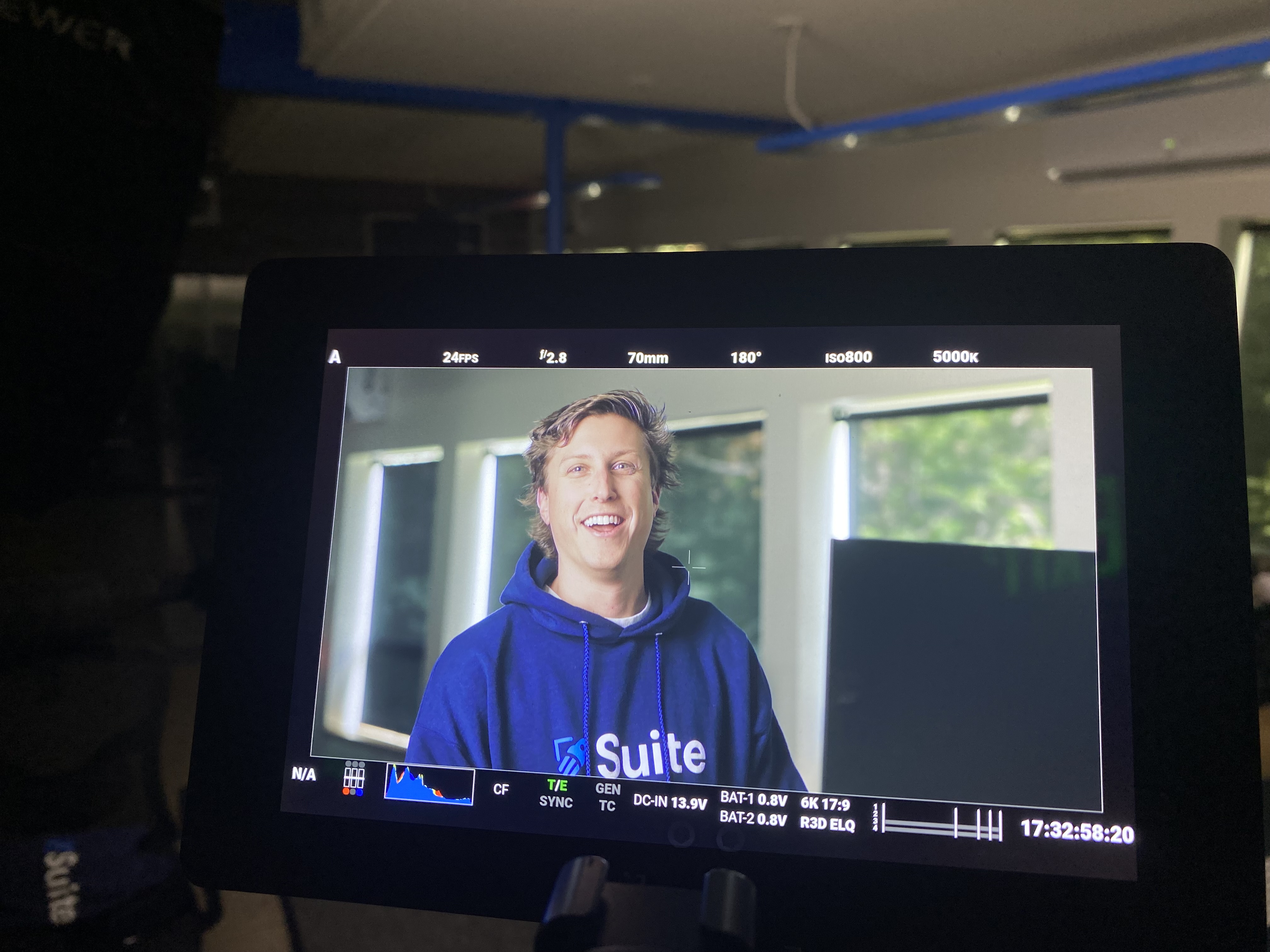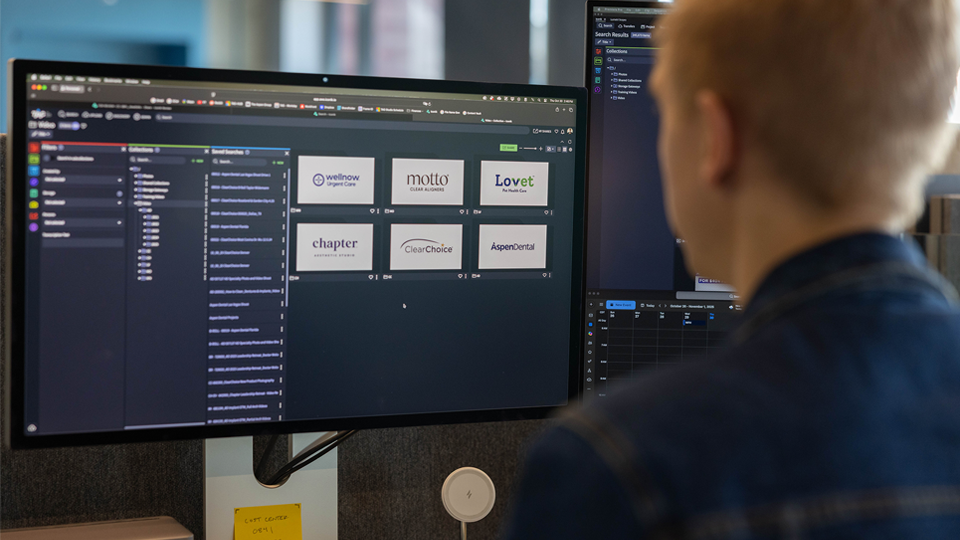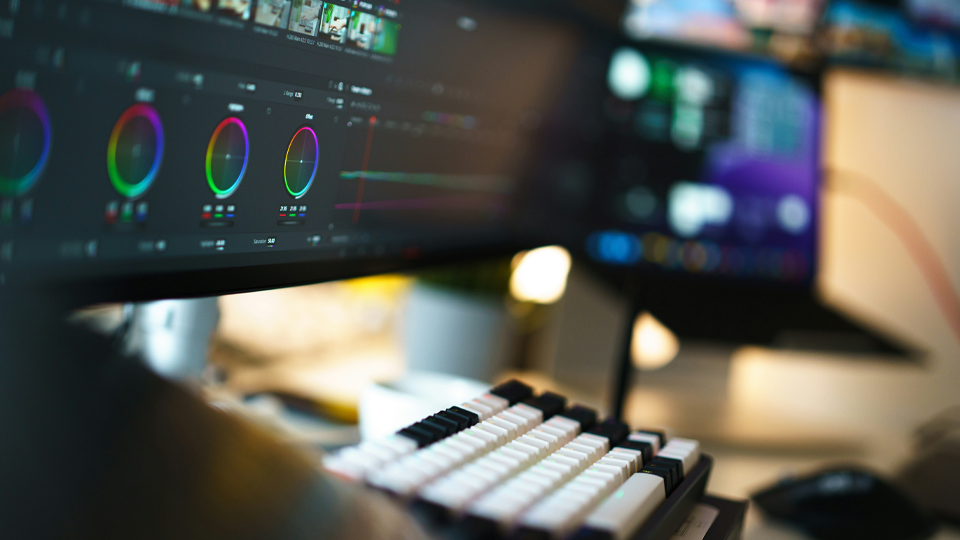RAER BETA0027: An inside look at one of the year’s most thought-provoking short films on Artificial Intelligence

Samuel Taggart

8 Minutes

How does Artificial Intelligence interplay with our human emotions?
When we’re forced to look in the mirror, what happens next? In his latest project, “RAER BETA0027,” filmmaker Ryan Jaeger, in partnership with Stept Studios & Lockt Editorial, poses the question: What will the human relationship with Artificial Intelligence look like in the distant future? How will technology help—or potentially hurt—humans coping with the intrinsic, emotional side of life?
Set in a distant future, the film follows Ophelia Price (played by Samantha Robinson) as she navigates intense grief. In her search for solace, she encounters a mysterious tech developer (portrayed by Aristotle Athari) who introduces her to a groundbreaking device designed to induce extreme emotional responses & help humans cope with their biggest vulnerabilities. As the 27th participant in this experimental program, however, Ophelia's journey raises questions about the role of technology in our emotional lives today—and where it will go in the future.
"RAER BETA0027" arrives as a timely piece highlighting the delicate balance between embracing innovation & preserving the intrinsic aspects of humanity. Jaeger’s words offer an important sentiment: "It’s important to be reminded, even though things might be garbage, when they get better you’ll know, but only because you’ve been through the tough times."
Suite recommends immersing yourself in the film before reading the in-depth conversation below—it’s a narrative that invites introspection, and challenges our perceptions of technology's place in our lives. In this exclusive interview with Suite, filmmaker Ryan Jaeger shares the origins of the project, his creative process, and the intricate dance between tech and art that made it happen.
Where did the idea for “RAER BETA0027” originate?
In 2020, I worked with [lead actor] Samantha, who plays the Ophelia, on Tarantino’s Once Upon A Time In Hollywood; we met for dinner at some point during the hell of that year & ended up getting into a long conversation about loss... I lost my mom a number of years prior, and she had just gone through something similar. We were discussing how being forced into a place of solitude made us deal with these repressed emotions because the chaos of everyday life had been wiped out. As the world gets increasingly tech-heavy, it’s a weird thought-experiment to consider: What if tech could do everything? What are the very things that make us human? Can a human experience be replaced by… a technological shortcut? That was the basic gist of how the movie came-to-be…
What attracted you about making a short film for this project?
[Laughs] Short films can be a nightmare to pull off. The first short film I did was a western—it was lovely, we shot it on film, we had horses. But we did everything that you shouldn't do in terms of making a passion project. Undoubtedly, you run into a hundred hurdles…
When starting to write RAER, I challenged myself to write something contained, more focused on the subject matter & less on the spectacle. How the movie is staged—with a man administrating a test—is an homage to Blade Runner. Ophelia's character was developed around The Man & the test; we were trying to create something futuristic, but also grounded in the reality of today.

How does Ophelia’s character serve to represent the modern human?
We wanted to paint the picture of a control freak. Everything in her control is immaculate; her presentation, her demeanor; how welcoming—maybe even *over-welcoming—*she is when The Man shows up; how eager she is to please... The more we unpacked it, the more we realized the many different phases we go through during the emotional process. We try to touch on every one of those phases in the 20-minute span of the movie.
What role does The Man play in getting Ophelia to interact with the Machine?
The Man has a really interesting role—he knows that he has to strip away Ophelia’s defense mechanisms in order to get a real response with his machine. He's deliberately prodding her and invoking certain emotions; he’s stripping away the veil & shaping her to become more vulnerable with the technology.


Can you speak about the visual story you’re trying to tell in "RAER"?
In a perfect world, we would have shot it on film—the aberration & textures that you get on celluloid are just a little more “human,” in the sense that it’s imperfect. We didn’t want it to be perfectly polished film, shot in 8K, razor sharp; that’s a sterile presentation, surgical almost. I was trying to find a way to make [this movie] feel more human, and lighting was a part of the conversation as well—you may notice it’s warm & inviting at the start, then the atmosphere gets colder as the film progresses. That’s all part of shaping the world within the set.
Was there any notable gear you used to achieve those effects?
We wound up using these super funky lenses from the old widescreen-format days in the 1970s. They're super clunky, anamorphic lenses that have all these unique characteristics—like a lot of weird artifacting—and that struck a good balance with the digital sensor. The world we live in isn't exactly perfect. That's what we were really trying to nail from the visual side of things.

Tell us about the Score & Sound Design for this project...
Lockt was super helpful with the sound design, especially lead sound designer, Eric [Crepeau]. We’re trying to sell a world without breaking a budget—we couldn’t afford to build the spaceship that flies across the screen, so we’re trying to find clever ways to delineate those ideas. When Ophelia is dealing with the Machine you can hear it chugging along; it's clunky tech in it’s BETA phase. Those elements laid the foundation for our composer, Tommy Simpson, who has worked a lot with Trent Reznor and Atticus Ross, and has an electronic music background. You can definitely recognize those elements in the opening & ending cues. We’re just trying to tell the story & show how things are evolving, through every element. Whether that's sound design or the score, you want those elements to have movement, just like your characters…
How does technology influence your life as a creative?
It’s interesting to see that anyone can create [entirely made-up] worlds now, if they know how to use the right tools. Art also becomes a little more democratized & accessible; it’s easier now to make visual effects. Certain parts of the filmmaking process are aided, and maybe more enabled [by technology], but there's also a risk of losing some of that what I think makes a film sing if you lean too much into it. In my world, I just hope that the tech makes my processes more efficient.

Why should folks stop what they're doing & watch this movie right now?
To some degree, everybody has dealt with a really hard time; but it’s important to be reminded, even though things might be garbage, when they get better you’ll know, but only because you’ve been through the tough times. That’s something that Ophelia & The Man invoke. She just wants to feel better—but it’s like she wants to bypass the work. For someone to sit down & watch [they might realize] that it's not so bad to do the work. The work's helpful, and so is time. Humans aren’t used to confront everything at once, but that's what happens to Ophelia; she gets bombarded with everything & I would argue she eventually breaks. Hopefully the film makes somebody question the time they’re giving themselves to reflect; helps them understand if they’re distracted; or maybe that, after all, it's not so bad to have introspective moments…
Any final thoughts?
I want to give a big shoutout to Stept. They're hungry to help new voices find resources, support these kind of passion projects, and there's not many studios or people out there really trying to help younger filmmakers. It even feels familial. Everybody there is top-notch. I'm super grateful that they were so helpful in the process—the project wouldn't have been done without them.



































